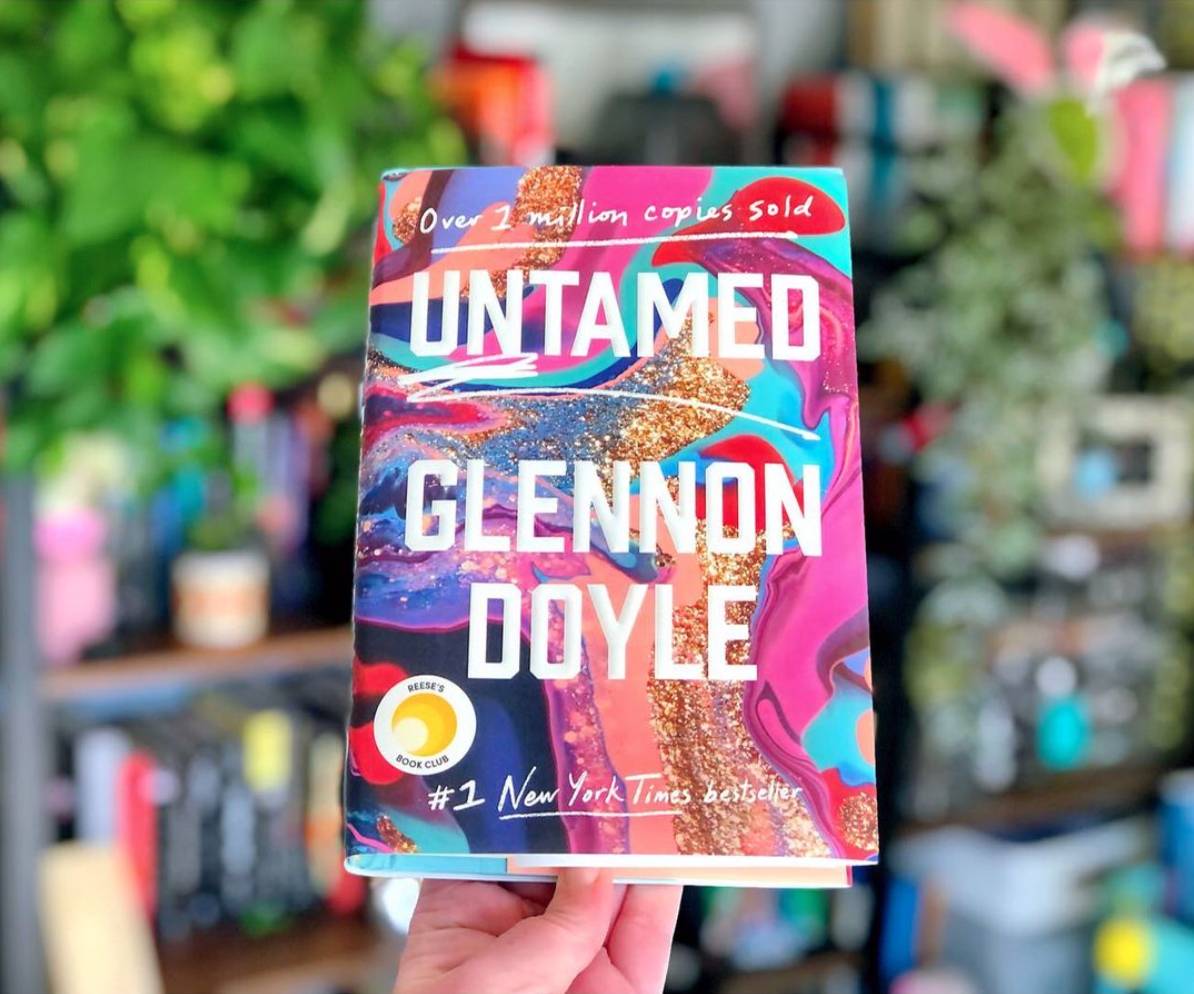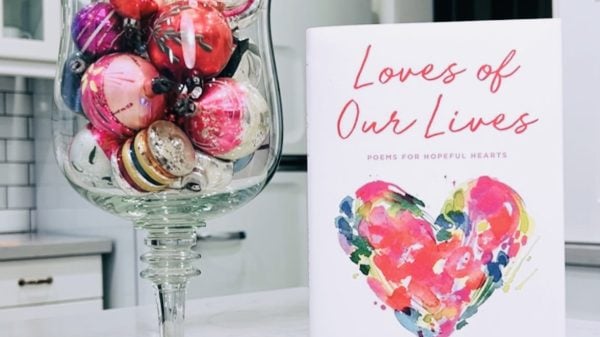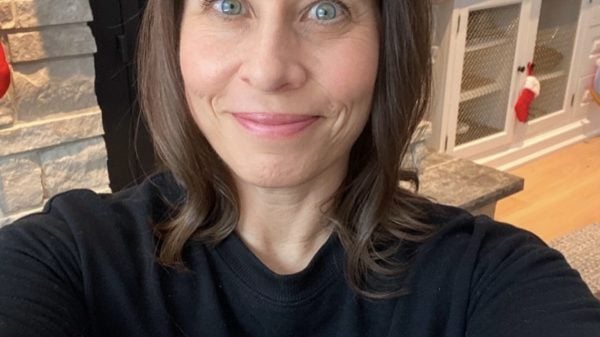As a society, we are obsessed with growth. Personal growth, growth of our bank accounts, growth of our possessions, growth of our spirituality and growth of our instagram followers. We have been told there is more out there in the world that can be ours and that we should strive for it.
So, we read and we listen to those people who are “braver and wiser than us”, who have broken free from archaic ideals of how we should all exist, and hope to learn how they were able to create their own paths, achieve on their own terms, and discover a better, more fulfilling way of living.
I really need to preface this by stating that I (very much) like Glennon Doyle. I admire her adversity, her straightforwardness and her uncanny ability to live without the fear of shame. My copy of Untamed has been read four times and is riddled with notations, asterisks, underlines, and tear stains. But every time I picked up that book after that initial read through, I found that more questions would raise to the surface.

@kristinfullybooked via Instagram
These questions weren’t always in contrast to what she had written, sometimes I just wanted further clarification or an elaboration on a precise and poignant thought. So in the hopes that I would find the answers that the pages couldn’t provide, I began listening to podcasts that she guest-starred on.
I stopped after seven. Every interview was the same. They were oral Coles Notes versions of her best-selling book for listeners who hadn’t read it. They were then told they should read it, following an awkward, all-out fan girl session. I will not argue against the well-deserved praise, but as someone who has read the book (four times), I found it to be an enormous waste of my time and of her immense talent.
It is my belief (which I suppose could be grossly inaccurate) that Doyle would be OK, if not pleased with, anyone who challenged her narrative. Doyle’s struggles, demons, family dynamic, relationships with her girl friends… they are hers and hers alone. We can find little pieces and reflections of ourselves within some of the chapters, but at the end of the day, Untamed remains Doyle’s story.
One podcast stood out where Doyle spoke to how our sense of belonging becomes threatened by our rejection of social conditioning. What we were told to value, how were were expected to act as a friend, daughter and partner, when we decide we no longer want to be controlled by those tiny margins of “acceptance”, we sometimes risk losing the people we love.
I couldn’t help but draw a direct parallel from that example to this entire personal growth movement. When people choose to abandon these ideals in hopes of living a more meaningful life, is it because they are truly opposed to them, or it is because a newer, shinier alternative with beautiful cover art now exists? Are we really committed to living more authentically, or are we subscribing to it because everybody seems to be doing it?
$elf-Help $ection
The self-improvement and personal development market is nothing new. It has been around for decades and every year, it gets an updated cover star. 2020 was the year of Glennon Doyle. She would have been the face of it with or without the COVID-19 pandemic, the lockdowns, and self-isolation.
Our lives literally stopped. The pause button was hit and for many the show hasn’t come back on. We are living in a strange purgatory – some of us are just waiting for things to go back to “normal” and the rest of us are figuring out how to proceed in a world of uncertainty. The one thing we can control, and have been able to throughout the last 10 months, is how we treat ourselves
Self-help book sales and podcasts are booming because we either have the extra time for self-care or because self-care has never been more essential when it comes to survival. Self-improvement can be therapeutic, empowering and transformative, but like most things in life, there can be a dangerous side to it too.

@glennondoyle via Instagram
Thank You, Next
Practicing gratitude can be challenging in a normal year, so when you add a worldwide pandemic, finding silver linings can be even harder. When you relentlessly focus on self-improvement, it’s easy to become ignorant of your own blessings. The value and wealth of your relationships, talents, privileges, and opportunities can become tarnished when you are constantly seeking more outside of them.
Gratitude can seem impossible when there is a mixed bag of chaos and displeasure, so sometimes it helps to compartmentalize your life. Do you have a partner you care about, and he/she/they for you? Do you have a job that you enjoy? Do you have meaningful friendships? Do you have a pet that you love? Are you really good at something? None of these things is more important than another and no, it does not make life suddenly better, but it’s imperative to your well-being that you find a way to be grateful for the questions that you answered yes to.
As for the ones that you didn’t answer yes to? If they are causing paralyzing stress or are harmful to you, then yes, they need to be addressed immediately. But if they aren’t, sometimes its OK to put something on the back burner and supplement happiness from other parts of your life until you’re ready to make bigger changes.
Lofty Goals
Goals are an important part of personal growth, but when you have too many of them, or have them set too high, the disappointment of not meeting them can become debilitating. Small, tangible and realistic goals are the best place to start. The small wins that seem like insignificant victories are what will motivate you to move forward towards bigger goals, but acknowledging them is essential to both your growth and mental health.
In their book, The Power Principle, Steven Kramer and Teresa Amabile claim that of all the things that can boost emotions, motivation, and perceptions during a day, the single most important is making progress in meaningful work. The more frequently people experience that sense of progress, the more likely they are to be creatively productive in the long run.
Simple tasks like going for a walk, finishing the laundry or tidying up your closet are tiny check marks, but they improve your mood, decrease stress levels and help you to focus on bigger tasks at hand. If there is something great that you want to achieve, start at the top and break it down into smaller steps and feasible goals that will help you get there (eventually).

@thepowerprincipal on Instagram
Do What I Say, Not What I Do
You know this person. They sign up for all the classes, read all the books and preach self improvement, but when it comes to actually practicing it, they’ve never done it. Working on yourself, looking in, and listening to “your knowing” are not easy tasks for the faint of heart. The idea of living authentically sounds appealing but the journey to getting there and the upkeep can be dark, painful and confusing.
For those who read Doyle’s story, it was not one that many would envy, but it was read enthusiastically. What I think got most of us through it was having the knowledge that she got the ending that she so bravely fought for. We all want that too, but how many of us are actually willing to do the grunt work to get it? Especially if it means resurfacing unhealed wounds, admitting to addictions, leaving our partners and risking it all?
Not everyone’s road to personal fulfillment is laced with so many obstacles, but the truth is that once we start, we don’t know its trajectory or how quickly we will arrive at the destination we are so desperately searching for. I think it’s imperative that you self-assess your life regularly. Rid your soul of what no longer serves you and welcome new relationships, opportunities and feelings that will nourish you. It’s not always drastic changes that are necessary in order to achieve a more meaningful existence.
Lasting Lessons
- Boundaries are important, but when you set too many, you can build a fence so high that you never let anyone in.
- Life isn’t black or white, so its not a Sophie’s Choice between being selfless and selfish. You can put yourself first and stay true to who you are without losing consideration for others.
- When people have certain expectations of you (like texting back ASAP), it’s because you have confirmed that they are reasonable. Everyone is allowed to change their minds and remove those expectations, but should we not (at the very least) communicate that to those we’ve enabled?
What I did take away from Untamed is a reminder to soak in the silence, to not allow my anxiety to prevent me from being fully present, and new confidence in not having to explain myself and my decisions. We don’t give ourselves enough credit. Doyle didn’t necessarily tell us things that we didn’t already know, she just told them in a way that resonated, that drew on our emotions, that used beautifully crafted analogies and that made us feel a little less alone during a terribly lonely year.
Belonging is a need that we naturally seek in order to feel loved and secure. Its third on Maslow’s hierarchy of needs for a reason. Whatever reason someone chose to pick up a copy of Untamed or any other book on personal growth, it really shouldn’t matter to anyone but them. I’m sure many found it on a best-sellers lists and read it to pass the time, but there are people who bought it hoping to find a major takeaway (like me) and I truly hope that they got one.
I also hope that they recognize that they, and not any self-help author, are responsible for whatever growth that follows. It’s easy to put other people up on pedestals – it’s far more challenging to see ourselves in that same light. You and only you are the creator of your own life experience.
“It’s your story, write well, edit often.”– Anonymous

Photo: Unsplash











You must be logged in to post a comment Login